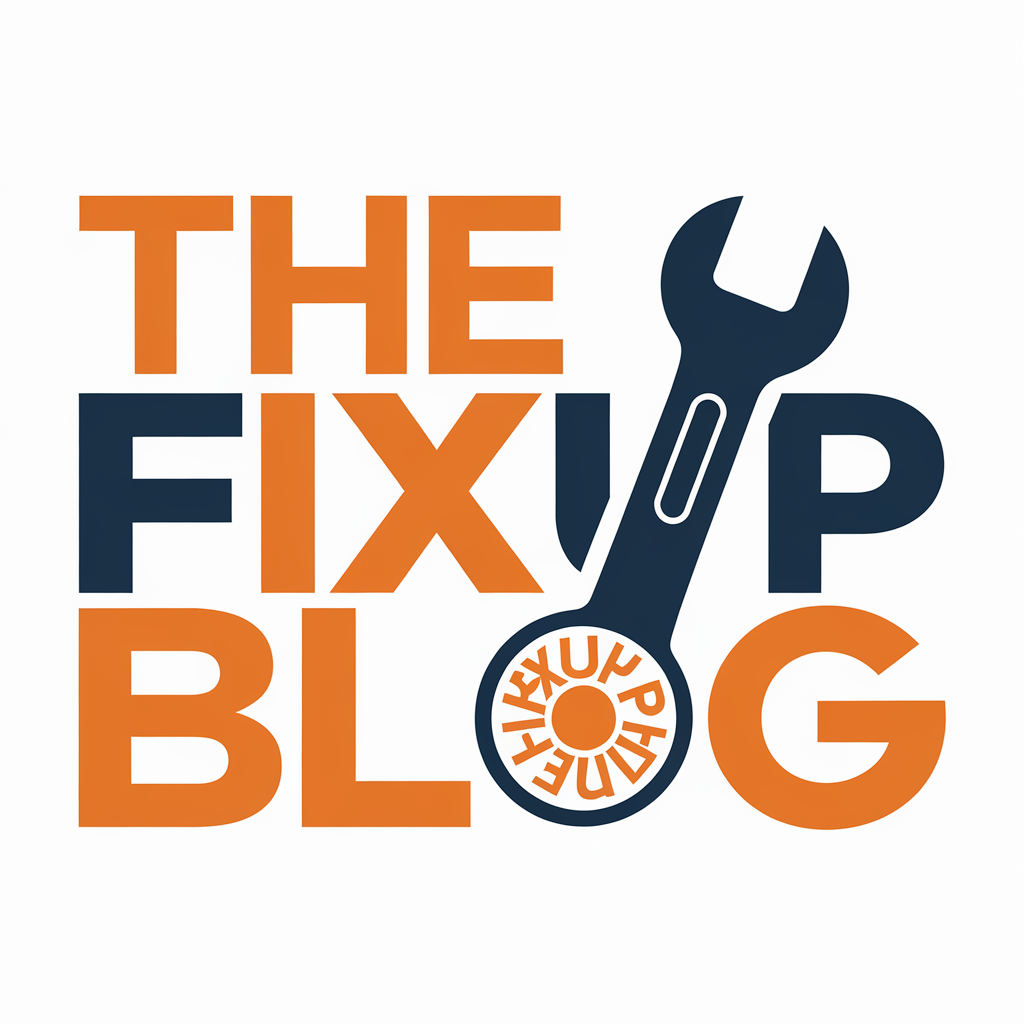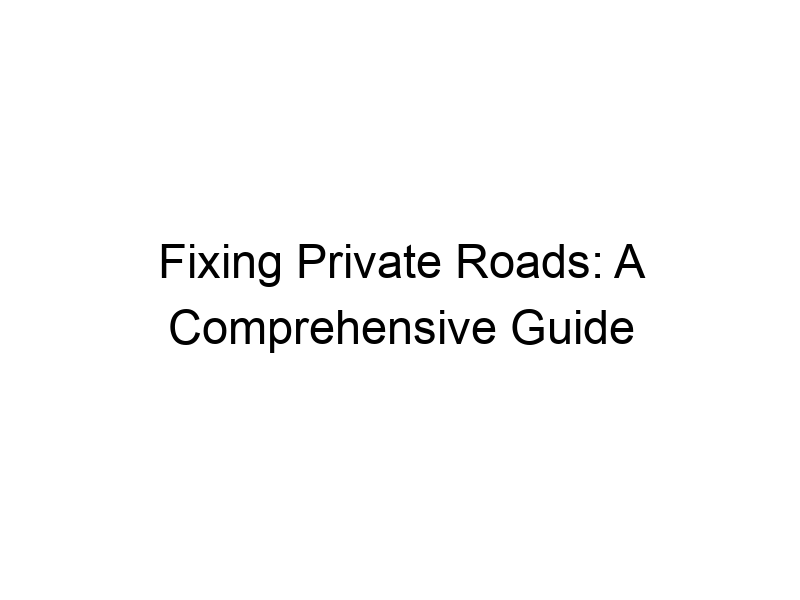A bumpy, pothole-ridden private road can be a major headache for homeowners. This guide provides a comprehensive overview of how to get a private road fixed, covering everything from understanding your responsibilities to navigating legal and financial hurdles. We’ll explore various methods, from DIY repairs to engaging professionals, and help you determine the best approach for your specific situation. You’ll learn about the importance of maintenance, potential pitfalls, and how to effectively communicate with your neighbors and relevant authorities. Let’s get started!
Private roads are not maintained by local governments. Ownership and maintenance responsibilities rest with the individuals or entities who own the land the road traverses. This ownership can be individual, shared among multiple homeowners in a development, or held by a homeowner’s association (HOA). Understanding this ownership is the first
crucial step in initiating repairs.
Liability and Shared Responsibilities
Depending on the ownership structure, liability for road maintenance and repairs can be shared amongst property owners. This shared responsibility can sometimes lead to disagreements and delays in getting repairs completed. Clearly defined agreements or HOA bylaws are critical in determining individual contributions and responsibilities.
Assessing the Damage and Defining the Scope of Work
Identifying the Extent of Damage
Thoroughly assessing the damage to your private road is crucial. Document the damage with photos and videos, noting the location, type of damage (e.g., potholes, cracks, erosion), and the overall extent of the damage. This documentation will be essential when dealing with contractors or seeking financial assistance.
Determining the Necessary Repairs
Based on the assessment, determine the type and extent of repairs needed. This might range from simple patching of potholes to major resurfacing or even complete reconstruction. The scope of work will significantly influence the cost and time required for the repair process.
Exploring Funding Options for Private Road Repairs
Self-Funding the Repairs
The simplest but potentially most costly option is self-funding. This involves covering all expenses associated with the repair work out of your own pocket. Consider budgeting for materials, labor, and potential permits.
Seeking Contributions from Neighbors
If the road is shared, consider approaching your neighbors to discuss shared funding. Establish a clear agreement detailing the cost-sharing arrangement, the scope of work, and the payment schedule. Written agreements are essential to prevent future disputes.
Homeowner’s Association (HOA) Involvement
If you are part of an HOA, initiate a discussion regarding road repairs at an HOA meeting. HOAs typically have funds set aside for maintenance and repairs, and the process for accessing those funds should be outlined in the HOA’s bylaws.
Choosing a Contractor for Private Road Repairs
Researching and Vetting Contractors
Finding a reputable contractor is crucial. Obtain multiple quotes, check references, and verify their licensing and insurance. Prioritize contractors with experience in private road repairs and a proven track record of successful projects.
Understanding Contractor Agreements
Thoroughly review the contractor’s agreement before signing it. Pay close attention to the scope of work, payment schedule, timelines, and warranty provisions. Consult with a legal professional if you have any concerns.
Obtaining Necessary Permits and Approvals
Depending on your location, you might need permits to undertake road repairs. Contact your local authorities to determine the necessary permits and the process for obtaining them. Delays in obtaining permits can significantly impact the project timeline.
Navigating Legal and Regulatory Hurdles
Understanding Easements and Right-of-Ways
Easements and right-of-ways grant access to your property and the private road. Understanding these legal aspects is crucial for ensuring you have the authority to carry out repairs and prevent future legal disputes.
Consulting with Legal Professionals
If you encounter complex legal issues or disagreements with neighbors or authorities, consulting with a legal professional is highly recommended. A lawyer specializing in property law can guide you through the legal complexities and protect your interests.
DIY Road Repairs: A Cost-Effective Approach (for Minor Repairs)
Identifying Suitable DIY Repairs
Minor repairs, such as patching potholes or sealing cracks, can sometimes be tackled using DIY methods. However, this approach is only suitable for minor damage and requires the necessary tools, materials, and skills.
Choosing Appropriate Materials and Techniques
Use high-quality materials specifically designed for road repairs. Research appropriate techniques to ensure the repairs are effective and durable. Poorly executed DIY repairs can lead to more significant problems in the long run.
Maintaining Your Private Road: A Proactive Approach
Regular Inspections and Maintenance
Regular inspections of your private road can help identify minor problems early, preventing them from escalating into more extensive and costly repairs. Simple maintenance tasks, such as cleaning drainage ditches and filling small cracks, can extend the road’s lifespan.
Developing a Long-Term Maintenance Plan
Create a long-term maintenance plan that outlines regular inspections, minor repairs, and a budget for major repairs or resurfacing. Proactive maintenance can significantly reduce the likelihood of major and costly repairs in the future.
Comparing Different Repair Methods and Their Costs
Cost Analysis of Various Repair Options
Develop a cost analysis comparing different repair methods (e.g., patching, resurfacing, reconstruction) to determine the most cost-effective solution for your specific needs and budget. Consider the long-term costs and benefits of each option.
Factors Influencing Repair Costs: Materials, Labor, and Permits
Material Costs
Material costs vary widely depending on the type of materials used and the quantity required. Asphalt, concrete, gravel, and other materials each have different price points.
Labor Costs
Labor costs depend on the scope of work and the contractor’s hourly rates. Larger projects with more complex repairs typically require more labor and thus higher costs.
Permitting Fees
Permitting fees vary by location. Obtain quotes from your local authorities to understand the potential costs associated with obtaining the necessary permits.
Timeline for Private Road Repairs: A Realistic Expectation
Factors Influencing Repair Timelines
Repair timelines vary depending on the scope of work, weather conditions, contractor availability, and permitting processes. Be prepared for potential delays and communicate realistic timelines with all stakeholders.
Utilizing Technology for Road Repair Project Management
Project Management Software
Utilize project management software to track progress, manage communication, and keep stakeholders informed throughout the repair process. This technology can enhance efficiency and facilitate better collaboration.
Frequently Asked Questions
What are the legal requirements for repairing a private road?
Legal requirements vary by location. Generally, you need to ensure you have the legal right to access and repair the road. You may need permits, particularly for larger projects. Consult local authorities and legal professionals for specific requirements.
Who is responsible for repairing a private road in a shared ownership situation?
Responsibility is usually defined in the ownership agreement or HOA bylaws. This often involves shared costs and agreement on repair methods. Disputes should be resolved through discussions or mediation.
How can I estimate the cost of repairing my private road?
Get multiple quotes from reputable contractors, clearly outlining the scope of work. Factor in material costs, labor, and permitting fees. A detailed cost breakdown helps budget effectively.
What happens if neighbors disagree on private road repairs?
Mediation or arbitration can help resolve disputes. Legal counsel may be necessary to enforce agreed-upon solutions or clarify legal responsibilities.
Can I do minor private road repairs myself?
For small, simple repairs like pothole patching, DIY might be feasible if you have the skills and appropriate materials. Larger projects usually require professional expertise.
What type of insurance do I need for private road repairs?
Liability insurance is crucial to protect you from potential accidents or damage claims during the repair process. The contractor should also have their own liability and workers’ compensation insurance.
Final Thoughts
Getting your private road fixed can be a complex process, requiring careful planning, communication, and potentially, legal guidance. This guide has explored various aspects of this undertaking, from assessing the damage and finding funding to choosing contractors and navigating legal hurdles. Remember that proactive maintenance is key to preventing significant issues down the line. By understanding your responsibilities, planning effectively, and communicating clearly with relevant stakeholders, you can navigate the process successfully and achieve a smooth, safe, and well-maintained private road. Don’t hesitate to seek professional assistance when needed – a little investment in expertise can save you significant time, money, and potential headaches in the long run. Begin planning your private road repairs today!

